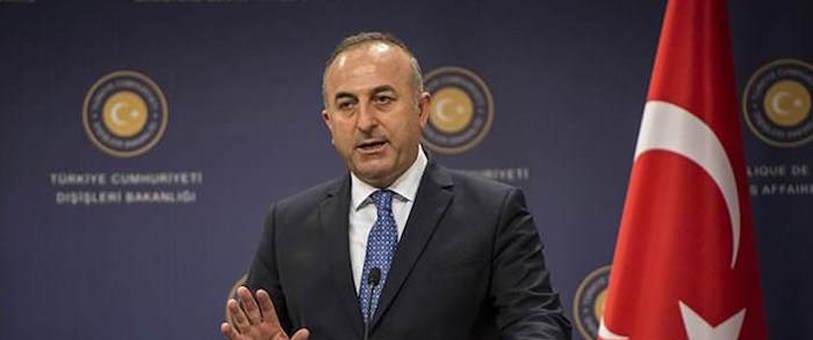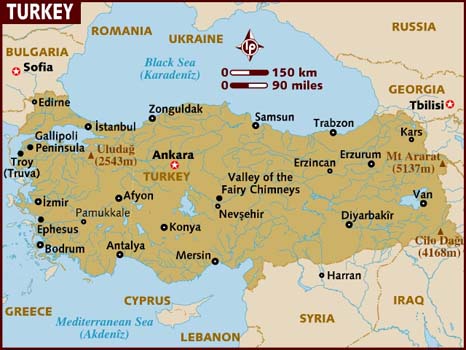US to extradite Fethullah Gulen?
December 18, 2018 | Expert Insights

U.S. President Donald Trump has told his Turkish counterpart, Tayyip Erdogan, that Washington is working on extraditing a U.S.-based Muslim cleric accused of orchestrating a failed Turkish coup in 2016.
Background
Muhammed Fethullah Gülen is a Turkish preacher, imam, writer, and political figure. Gülen lives in exile in the United States.
Fethullah Gulen emerged in the 1960s as an Islamic preacher within a constitutionally secular Turkey. His advocates call him a guru of moderate Islam tinged with humanitarianism, delivering his ideology through a network of high-achieving schools in Turkey and about 140 countries.
The Gülen movement (often referred to as Gulenists) has been characterized as a civil society group promoting education, religious tolerance, and building social networks. Having shared a major goal of Turkish President Recep Tayyip Erdoğan of empowering religious individuals in civil life officially disenfranchised under then existing law in secular Turkey, Gulen and his movement was aligned with Erdoğan prior to 2013. The alliance was destroyed after the 2013 corruption investigations in Turkey. Erdoğan accused Gülen of being behind the corruption investigations.

Analysis
Turkey has long sought the extradition of Gulen, who has lived in self-imposed U.S. exile for nearly two decades. A former ally of Erdogan, he is blamed by Turkish authorities for the failed coup when rogue soldiers commandeered tanks and helicopters, attacked parliament and shot unarmed civilians.
Gulen denies any involvement in the failed putsch. Trump said last month he was not considering extraditing the preacher as part of efforts to ease Turkish pressure on Saudi Arabia over the killing of Saudi journalist Jamal Khashoggi in Istanbul.
Erdogan said last week Turkey would start new initiatives abroad to target the financing of Gulen supporters.
“I have recently seen a credible probe by the FBI on how the Gulen organisation avoids taxes,” Cavusoglu told a conference in Doha.
The Federal Bureau of Investigation declined to comment on whether the law enforcement agency was investigating individuals or entities with ties to Gulen for tax evasion.
U.S. Representative Bill Pascrell, a Democrat, said that reports Trump were considering extraditing Gulen show his “affinity for strongmen.” “Mr Gulen does not deserve to be a pawn in Trump’s attempts to cover up the murder of a U.S. resident for the increasingly lawless Saudi royal family,” Pascrell said in a statement.
Mr Cavusoglu said Turkey had also requested the extradition of more than 80 Gulen followers living in the United States. Turkey has repeatedly requested that Mr Gulen is handed over, or that he be prosecuted in the United States. Turkish officials have often complained that the United States government has done little with what Turkey says is 85 boxes of evidence in support of the case against the preacher that it has handed over.
Mr Gulen has denied playing a role in the coup attempt. United States officials have said in the past that Justice Department agents have devoted hundreds of hours going through the evidence, but that it does not meet the standard to secure Mr Gulen’s extradition in an American court.
Turkey and the United States have also been at loggerheads over the United States relationship with Kurdish forces in Syria. The Turkish government considers the Kurds a threat, and Mr Erdogan threatened this month to mount a new incursion into northern Syria to tackle the threat.
Assessment
Our assessment is that the fact the US is considering the extradition of Gulen is a sign of Washington’s growing insecurity with Turkey. Turkey is grown closer with Russia and is constantly threatening to eliminate the Kurds, which Washington opposes. We believe that the US is trying to retain Turkey as an “all-weather” ally in the Middle East by giving up Gulen.








Comments